Text
The world of a special needs parent
I would like to share with you all a blog I wrote for one of the courses I did this term for my special education degree. Here is the prompt and my response to it:
Families of children with Intellectual disabilities often experience more stress than families who do not have children with disabilities. Offer rationale as to whether you agree or disagree with this statement. How could you help these families?
As a mother of a boy with autism, I can understand the stress a family with children with intellectual disabilities experiences. I agree fully with the statement, and believe we as a society and educators can help families through education.
When my son was first diagnosed I was told he had autism, and he needed ABA therapy asap. I was told we should do genetic testing to see if we could find the cause for his autism. I can't remember to this day everything I was told, it all washed over me in a blur and I was terrified during the entire process. Not once do I remember someone explaining to me the benefits of ABA, not once do I remember having inclusion within the school system explained to me (this was when I was young, 19 to be exact, and was in my first year of university). All I really understood was my precious little baby boy that wasn't able to talk at age 2 may never learn to talk. It was horrendous. This stress is not readily comparable to everyday stresses of life like paying bills. I was constantly worried about his future; what if he never learned to talk, what if he never made friends, would he spend his school days in the isolated classroom above the stairs I walked passed so many times in my high school? The stress was rooted in fear because I had no real understanding of what his life could look like.
Now, as I work on my third degree I have a much better understanding and my stress is much less. My son is very smart, he loves to talk, and while we still have many hurdles they all seem bearable because I understand them. But not all parents have the luxury of an education degree, so how can we provide a similar relief?
First, and what I as a parent (not necessarily as an educator) believe to be most important for families, is comradery. Once my son was diagnosed my family was introduced with the autism society. Every year there are multiple events funded for us to attend, like the Christmas party or the weekend at killdevil camp each summer, to smaller get togethers like swimming and bowling. Through all these events my son has met some of his very best friends, all children with autism, and myself and my parents have made friends with their families. We all look forward to these events cause we get to feel normal. I don't stress that my son will have a melt down seeing Santa, because I know all the families there understand. There is no need to apologize when a child doesn't say thank you or ignores your greeting. The atmosphere is light and full of understanding. The Vera Perlin also provides such a sense of comradery, and included individuals with intellectual disabilities and their families. We have been invited to many Vera Perlin events and it is always a delight. Of course I love inclusion, and am grateful my son does so well in the general classroom, I relish the moments where I don't have to fear judgement when he exhibits behaviours that are seen as rude (like avoiding eye contact). For families with children with IDs, I can only imagine events with the Vera Perlin would give them similar peace, and its an excellent way to introduce your child to positive role models with similar disabilities.
Of course, comradery is excellent to help families that are struggling reach out when they need help or simply to vent to friends they know will understand, but more supports are needed. When we give any diagnosis, when anyone gives a diagnosis, it is critical to educate the families on what this means. When I look back at my sons diagnosis and all the tears I cried I am so upset because I know if I had understood things like I do now, that time would have been so much easier on not just myself, my entire family. Providing families with meaningful interventions early on is critical to help families avoid any unnecessary stress but we must also explain things so that they can understand what those interventions mean and what they will do. At 19 I thought I had failed as a parent, all the times my son lost his mind crying from being in a high chair because his senses couldn't handle it, the times he would try to communicate by using his body and I thought he was acting up, the guilt trip was never ending. No one tells you: "Hey, its okay. It's okay to not know, it's okay if your mothers intuition didn't tell you he had autism." I am forever grateful that my little cousin was born only a few months before my son so we were able to clearly see how far behind he was in his speech and get the ball rolling for an early diagnosis, but had we not had a little cousin to compare with it might have been years before we clued in.
When we were told my son needed ABA therapy, we had to find a suitable therapist on our own and they provided the training. Our laundry room became my sons therapy room and it was honestly, the worst experience ever. He screamed and cried and simply hated everything about this new routine. He never wanted to go in the room. Here we were, my parents and me, forcing this toddler into a room with his therapist, someone he didn't know (she was a long time family friend not s stranger to us, just to him), and I did not understand WHY. Why was this good? How did this help? I fully understand why other people I have talked to since that time and told me they couldn't deal with ABA. It's terrifying. However, after a lot of tears my son came around. And then he started to talk. Then he was reading words like "octopus" at age 3. And for a moment everything was great and I understood okay ABA is great it helped him so much. Until of course, our therapist had to leave us and we had to find a new one. That's when he stopped reading words like "octopus" and we learned what regression meant. Long story short, he is now in grade school and doing very well. His reading skills are back and strong, he excels in math, and his favourite class is gym and recess. He has made friends and he is quite happy. So for that I am so thankful. I just wish someone could have explained to me in the beginning that this terrifying diagnosis and the hardships we had with ABA and regression (when we switched therapists, happened 4 times) were normal struggles. The most helpful resource through everything we went through was never the autism team that came into our house when we got diagnosed and came into train the therapists. It was our autism family, the people who were living with autism just like us and could lend an ear and understand.
I think as educators we are exceptionally good at seeing things from our students point of view. When we hear a student has a disability we empathize easily with them, we make any and all necessary accommodations always thinking about the student first. Yet, we don't think about the parents and what they might need to understand. We may say "oh what a hard job those parents have" if we know the student acts out aggressively or is severely delayed but we don't stop to think "how scary must it be to want nothing more than to help your child and have no idea how." I know for myself that was the worst part. What worse stress is there for a parent than watching your child struggle every day and not being able to make it better? I still feel that way sometimes, and I'm sure all of my autism family does as well, which is normal. However the first year of autism, that stress and that fear, could have been alleviated with knowledge and understanding. We went from knowing nothing about autism, I don't think I had even heard about the term (again, I was only a teen not an educator at the time), to finding out my son was quite high on the spectrum and needed immediate intervention. I had to google what autism was, I had to google a lot during those meetings because I didn't understand most of the language they used.
As a future special education teacher, I think (or at least I hope) my experience as a parent will help me understand the parents perspective and I do hope that I can alleviate some of the stress they feel. I know from experience having someone that understands where you are coming from alleviates the fear of judgement (I mean you can't tell someone your sons favourite food is cold plain spaghetti when you know the other kids eat normal healthy food you'll look like the words worst mom).
It is our job as educators to reach out to our students parents to get them involved and to make sure they understand what the school is doing to help their child in a way they can understand. For example, saying you're going to provide their child with a speech to text software or a visual schedule may be sufficient of an explanation if the parent is the field of education or something similar, but for some parents this doesn't hold much meaning. When we explain to parents, by using speech to text software we can get a better representation of their child's learning and that the visual schedule helps them with transitions and alleviates potential tantrums you give the parents much more than information you give them piece of mind. An open and constant line of communication between teachers and parents can make such a difference for all parties involved, even the student.
And of course, whenever you reach out to parent to tell them about something that happened during the day always make sure you have some good news. No child comes to school and is misbehaving every minute. Furthermore when you are constantly seeing parents and telling them bad news regarding their child, parents will associate seeing you as a negative. When I worked at the private school in Corner Brook in junior kindergarten there was no us service so we got to see the parents at drop off and pick up most days. I remember having a student in my class that was known for acting out (biting, pushing, being 'mean'). The little by was 4, and it was his second year in JK (he had to be taken out of JK the previous year because of his behaviours). He was put into my class instead of returning to his old JK class, and my co teacher was quite nervous. I remember his parents well, and him even better. Any time I had to talk to his mom or dad, no matter what he had done, I always ended it with some really good news. Now of course the little boy was never out of ear shot when I was speaking to his parents, so he could hear me tell his mom or dad what he did and of course looked terribly sad and guilty, but when I mentioned the way he shared his toy with a friend and I was proud he always smiled. His parents always listened to my full report, never dismissed the negative behaviour and would talk about it with him, but by ending on a positive note our teacher parent relationship was really strong. During that year my chats with the parents started to become all good news, and it was clear by hearing the positive news the little boys attitude towards school and himself were changing and the parents seemed so much more at peace when they came to get him. I remember how discouraged they were in September, afraid that he would not be able to complete JK again and how completely different their attitudes were by just November was astounding.
Honestly, I'm not sure why I felt the need to share my blog in the public I just felt encouraged by my profs comment and believe inclusion and awareness are so important it can't hurt to try to spread the word and to let parents with special needs children know they aren't alone. I see how hard school can be. I know how hard it is to just get by sometimes. I want to normalize struggling as a parent because honestly, what parent doesn't struggle at sometime or another? It's okay to not be okay, but what I don't want is for anyone to feel alone.
#autism#autismacceptance#autismadvocate#autismawareness#blogger#teacher#special education#parenting#me as a parent
3 notes
·
View notes
Text
Help
Its my best friends birthday how do I show her bday love on tumblr?
3 notes
·
View notes
Text
Women need fashion?
So my brother in law was talking about wearing shorts to a wedding for a guy last evening and asks my opinion. I know it'll be well over 30 degrees Celsius with the humidity so i say sure why not.
Then he laughs it off and says "well you don't know anything about fashion anyways" and i can only assume i looked both hurt and confused and kinda shrugged it off so he went on to add "i mean you can dress up when you want you just dont care for it"
Then he asks my boyfriends opinion who for the life of him cant match a shirt and top. When my boyfriend said no to shorts at a wedding except at a beach my brother in law sighed and cursed obviously hoping for another answer.
So my brother in law wanted the green light for shorts but my green light meant nothing because apparently im not seen as fashionable? I dunno why it bothered me so much but it did. Mainly because i know im better at fashion than my boyfriend (not that i care or think its a competition) so why wouldn't my opinion matter? Am i crazy?
0 notes
Text
It's funny how blind people can be to mental illness. They dont realize my "loud personality" isnt because im social and bold but because I have social anxiety and I end up talking loudly because my heart is racing and i can hear my blood rushing in my ears and my vision is blurring and Im literally talking over my panic. People hear my jokes and see me always trying to make people laugh and think "oh your so up beat" when really humor is my mask I hide behind so no one knows how truly sad I am and how afraid I am of the possibilty I have depression much like my grandmother. No one knows I constantly sit at home re thinking every single interatcion and how stupid and awkward I was. No onr realizes the comstant agony and guilt and exhuastion that comes from trying to hide not being okay. Mental illness isnt always brave. We cant always come into the spotlight and ask for help. Please just be kind, you never really know whats going on inside someone. We are all fighting through our own storms.
5 notes
·
View notes
Photo

Mind blown
1 note
·
View note
Photo

0 notes
Photo

Dead 😂
1 note
·
View note
Photo
😂😂😂❤

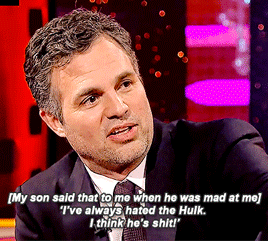
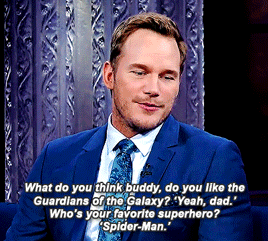
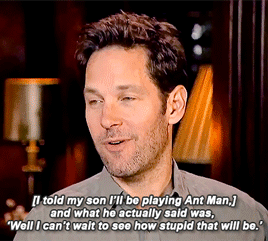
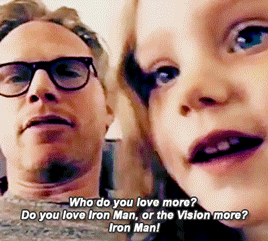
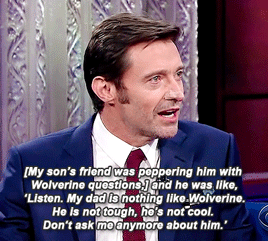
way to break your old man’s heart kids ;)
127K notes
·
View notes
Photo

We really are a complicated species
0 notes
Photo

0 notes
Photo

When your bff hates your dad more than you hahaha
0 notes
Photo

Brb - bathroom break
1 note
·
View note
Photo

🙋♀️🙋♀️🙋♀️🙋♀️🙋♀️🙋♀️
2 notes
·
View notes
Photo
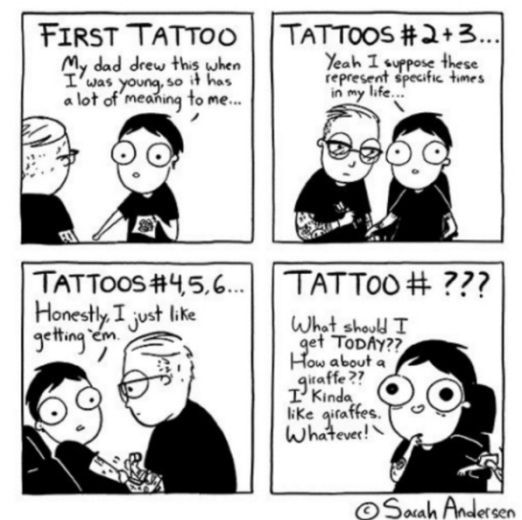
Basically how it goes
6 notes
·
View notes
Photo
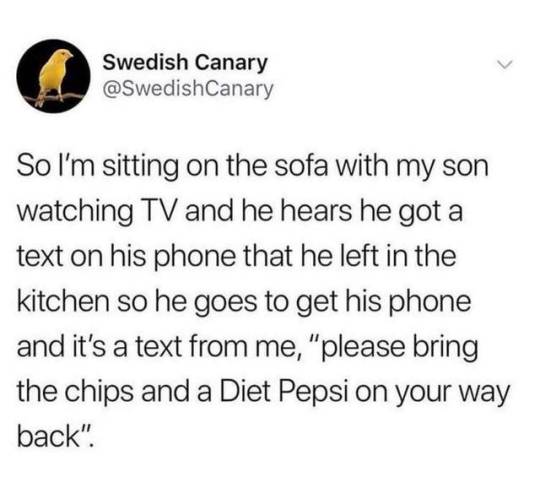
4 notes
·
View notes

